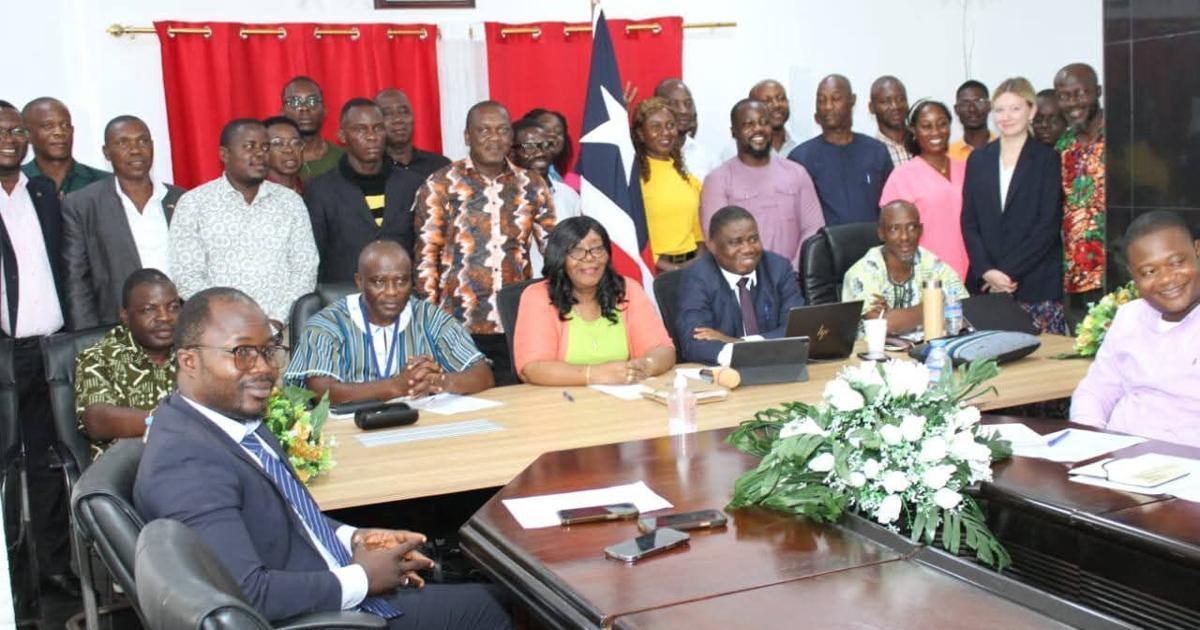Africa-Press – Liberia. The Ministry of Finance and Development Planning (MFDP) convened a high-level strategic meeting to assess and strengthen interventions under Pillar One – Economic Transformation – of the Arrest Agenda for Inclusive Development (AAID).
The meeting brought together sectoral ministries and implementing agencies responsible for driving progress under this crucial pillar of the national development agenda.
The gathering focused on coordination, leadership structure, and the strategic policies and programs essential to achieving the government’s economic transformation goals.
Liberia’s ARREST Agenda for Inclusive Development is a strategic framework introduced by President Joseph Nyuma Boakai to drive national transformation.
ARREST, an acronym for Agriculture, Roads, Rule of Law, Education, Sanitation, and Tourism, focuses on revitalizing key sectors to foster inclusive growth and improve citizens’ quality of life.
Central to the agenda is the belief that development must benefit all Liberians, especially marginalized communities.
Through targeted investments, institutional reforms, and improved governance, the ARREST Agenda seeks as well to reduce poverty, boost economic productivity, and enhance public service delivery, thus laying the foundation for a more equitable, prosperous, and sustainable future for Liberia.
In her opening remarks, Tanneh G. Brunson, Deputy Minister for Budget and Development Planning at MFDP, emphasized the significance of the meeting in aligning stakeholders around the shared mission of inclusive economic growth.
“This gathering underscore our collective commitment to implement and advance strategic policies and interventions under Pillar One.
A critical part of this process is effective reporting, monitoring, and evaluation,” she stated.
Brunson stressed that only a few of the 27 institutions involved in the Economic Transformation Pillar submitted their first-quarter performance reports, and she urged all stakeholders to ensure timely and accurate reporting.
She stressed that transparency and accountability are essential for mobilizing resources and building public trust.
“Through our joint efforts, we can reshape Liberia’s economic future and counter misinformation with real, measurable success stories from the AAID,” she added.
Also speaking at the event, Wilmot A. Reeves, Deputy Minister for Commerce at the Ministry of Commerce and Industry, emphasized the urgency of transforming Liberia’s economy, which he noted remains heavily dependent on imports.
“In 2023 alone, Liberia spent over 90 million U.S. dollars on the importation of primary commodities,” Hon. Reeves noted. “The architects of the AAID recognized the need for a clear shift toward sustainable economic growth, with the long-term goal of achieving middle-income status by 2030.”
He cautioned, however, that achieving middle-income status would mean losing access to certain concessional financing terms, underscoring the need for strengthened institutions, systems, and productive capacity.
“Liberia must overcome the persistent challenge of implementation. Across Africa, we are rich in policies but fall short on execution. Robust implementation of the AAID is essential to bring our vision to life,” Hon. Reeves emphasized.
In special remarks, Dehpue Y. Zuo, Deputy Minister for Economic Management at MFDP, reinforced the importance of strategic planning, execution, and results measurement.
“For sustainable development, it’s essential to define a clear vision, set measurable targets, and focus on implementation. From agriculture to mining, we must ensure that all interventions across the AAID pillars are results-driven,” Zuo said.
He reiterated that agriculture remains President Joseph Boakai’s top priority under the ARREST Agenda, adding that sectoral engagements must be guided by accurate and data-backed policy decisions.
“Our technicians must ensure that reporting is not only timely but also of high quality and grounded in empirical evidence,” he concluded.
For More News And Analysis About Liberia Follow Africa-Press






